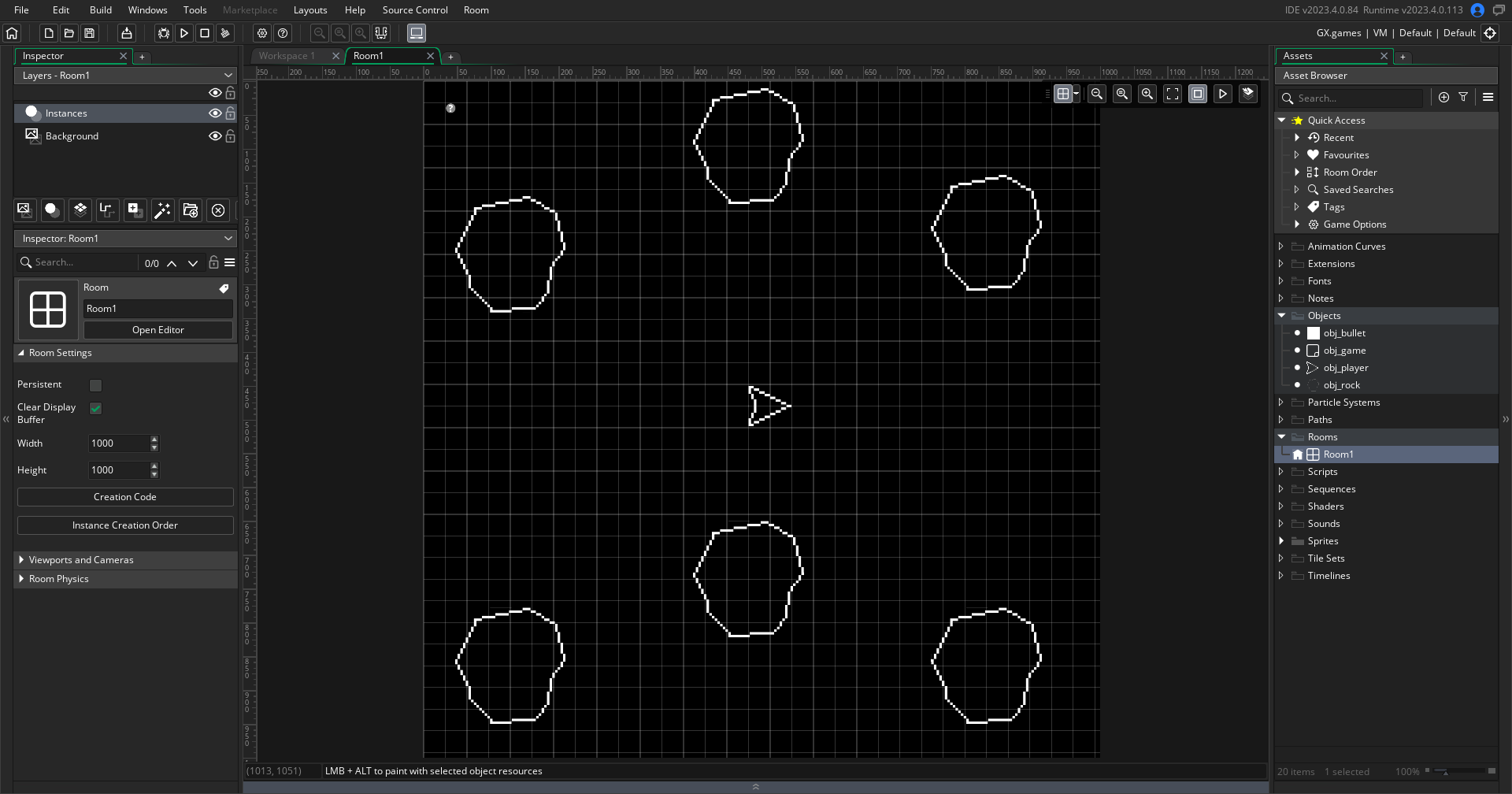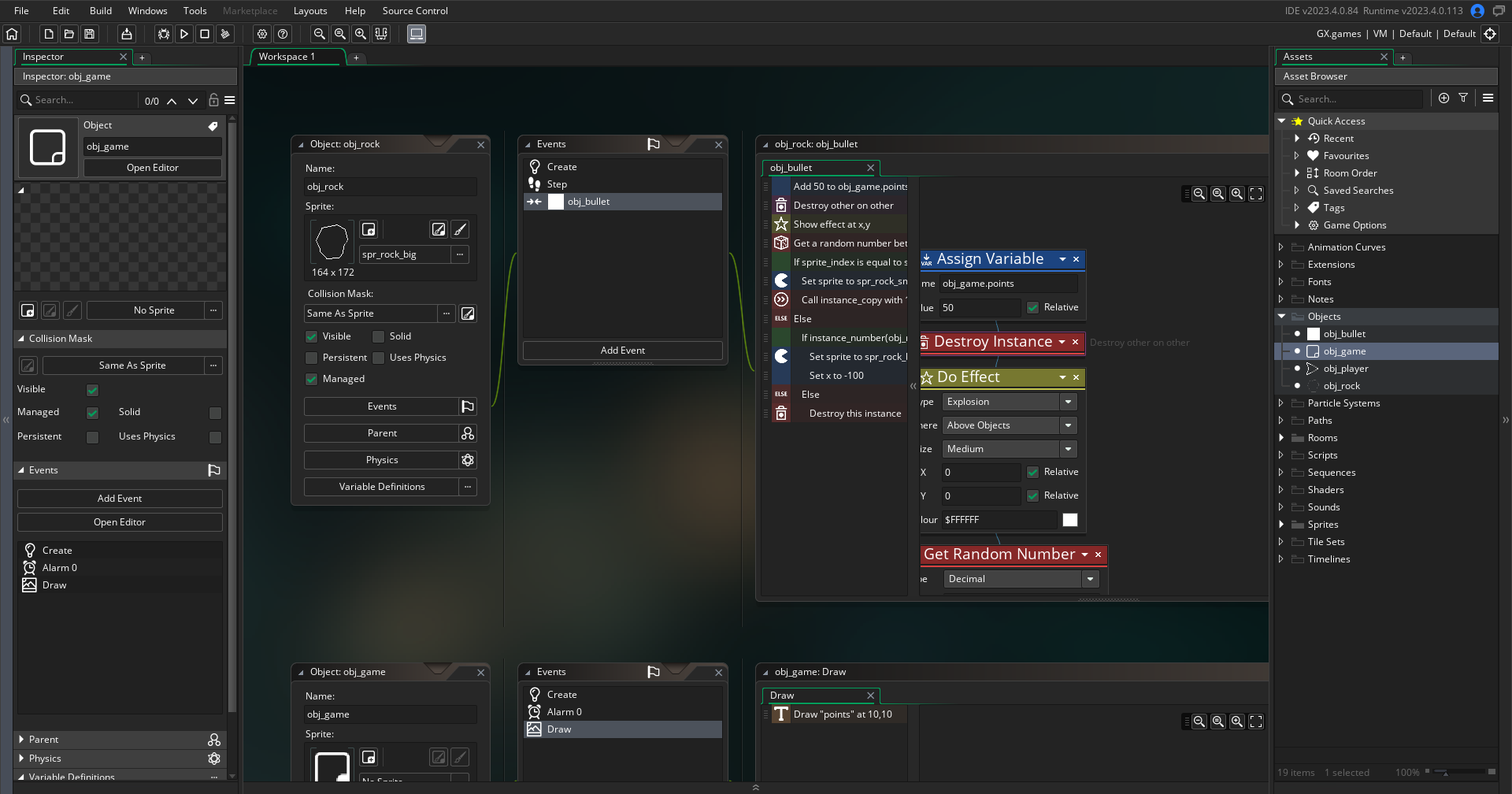GameMaker: How to Use It to Teach
GameMaker helps educators and their students design their own game with accessible features and easy-to-follow lessons

Tools and ideas to transform education. Sign up below.
You are now subscribed
Your newsletter sign-up was successful
GameMaker is a video game development tool that is designed to make creating 2D video games easy. This makes it a favorite for educators, who can use it to teach video game design and game-based projects in other subjects.
GameMaker, which is free for educators and their students, recently introduced Space Rocks, a game design tutorial and lesson program that will guide students to create their own asteroid shooter game after three lessons.
Frank Moody, education liaison lead at GameMaker, and a former K-12 classroom educator and technology director, shares how to use GameMaker and Space Rocks to teach video game design.
What is GameMaker?
GameMaker is a video game tool that allows indie developers, professional gaming studios, and educators and their students to create video games and make any available across platforms. Educators can use the tool to teach Computer Science Teachers Association (CSTA) standards and encourage student engagement and creativity.
“Kids want to create, they're naturally makers, especially when they're young. They want to build things,” Moody says. “They want a hands-on process and then they want to see the fruits of their labor. So when you see a kid and they make something on the screen, and then they control it, they light up. Then when they share it with their friends and have their friend come over and play, it’s really incredible.”

What is Space Rocks?
Space Rocks is a game design tutorial for GameMaker that will teach students how to design their own asteroid shooter game in three lessons. The tutorial teaches CSTA standards and provides students with an introduction to computational thinking concepts and game design principles with a variety of written and video-based learning materials.
“We wanted to create something that wouldn't be in the way and that would be easy enough for a parent to use for homeschooling,” Moody says.
Tools and ideas to transform education. Sign up below.
At the same time, they designed the tool as a jumping-off point for educators. “Teachers know their students," he says. "We wanted something that teachers could expand on. We're not trying to write their curriculum for them, but we're trying to give them ideas and resources.”

How Do You Sign Up for GameMaker and Space Rocks
To sign up for a free GameMaker educator account, teachers can visit this GameMaker’s site for schools and follow the four-step process that begins with creating an account with Opera, which owns GameMaker.
Educators and their students can then build browser-based games that can be shared on GameMaker’s gaming platform. This is all free regardless of class size.
However, to share games to mobile, console, and other gaming platforms, requires the purchase of a site license.
What Are Some Reasons to Teach Video Game Design?
Beyond computer science, the narrative structures inherent in gaming can be used to teach a variety of skills. Moody says he’s talked with educators who use game design in conjunction with project-based learning. He says these types of uses are more practical now that learning how to design a game is easier and that learning game design is about more than the technical and coding components.
“The end goal here is not for every student walk out a game designer,” Moody says. “Game design can be a great career, but we also think game design can be an incredible vehicle for teaching all kinds of skills -- art, sound, collaboration, empathy. When you're designing a game, you have to understand what your player is going to be going through. What is the experience where they coming from?”
Erik Ofgang is a Tech & Learning contributor. A journalist, author and educator, his work has appeared in The New York Times, the Washington Post, the Smithsonian, The Atlantic, and Associated Press. He currently teaches at Western Connecticut State University’s MFA program. While a staff writer at Connecticut Magazine he won a Society of Professional Journalism Award for his education reporting. He is interested in how humans learn and how technology can make that more effective.

